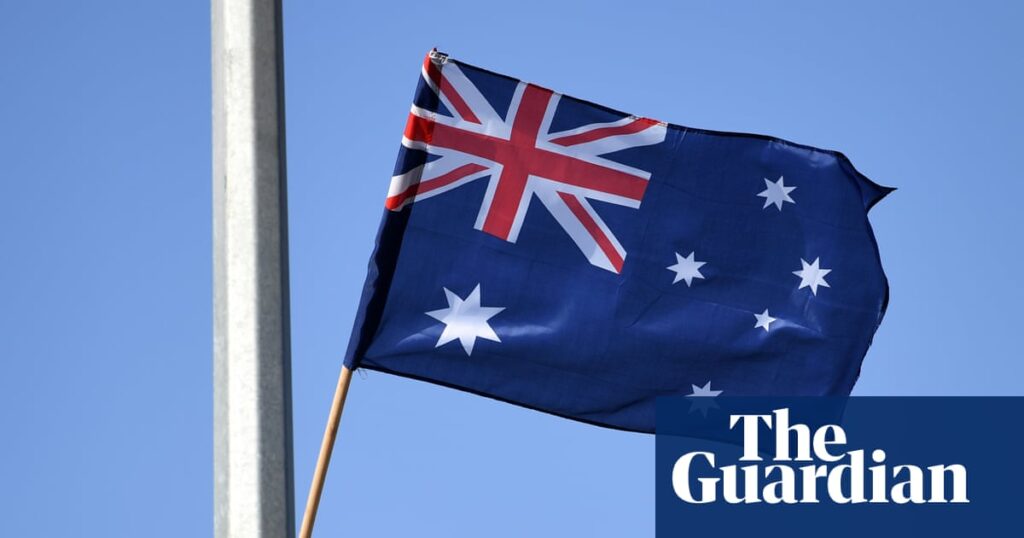Australia’s peak Jewish group has lambasted Benjamin Netanyahu’s attack on Anthony Albanese as “inflammatory and provocative”, adding that the “clumsy intervention” showed a “woeful lack of understanding of social and political conditions in Australia” – notwithstanding what the group describes as “unseemly” conduct from Australia’s leader.
The concerned intervention by the Executive Council of Australian Jewry came as Australia and Israel entered the third day of a diplomatic tit-for-tat prompted by Australia’s visa cancellation of far-right Israeli politician, Simcha Rothman, on Monday.
ECAJ’s president, Daniel Aghion, sent separate letters to both leaders on Wednesday afternoon. In the letter to Australia’s prime minister, he criticised Albanese’s previous comments accusing Netanyahu of being “in denial” as as “excessive and gratuitously insulting”. He echoed this criticism in his letter to Israel’s prime minister, saying it was “unseemly for an Australian Prime Minister to depart from diplomatic norms”. But he also dressed down Netanyahu for labelling Albanese “a weak politician who betrayed Israel and abandoned Australia’s Jews”.
“These comments have played straight into the hands of opponents of Israel and antisemites, to the detriment of the Australian Jewish community,” Aghion wrote.
“Had we been consulted, we would have warned against such a clumsy intervention into Australia’s domestic politics. The charge of antisemitism, whether made directly or indirectly, is a serious one and never to be made lightly.
“Doing so only invites scepticism, and undermines the efforts we and the government have been making to combat this pernicious phenomenon.”
Alex Ryvchin, ECAJ’s co-chief executive, also expressed reservations about the wording of Netanyahu’s attack.
“We’ve never used that sort of language and if we believed it, we would have said it along the way,” he said on Wednesday.
“We’ve expressed concerns for nearly two years now about some of the government’s rhetoric and policies and handling of the antisemitism crisis. We’ve had serious misgivings and we’ve made them known, but we’ve never felt abandoned. We’ve always felt like we can speak to government and speak to the public of this country.”
He appealed for “both governments to remember what’s at stake to ensure that calm heads prevail and to conduct their matters of state privately, diplomatically”.
In the Wednesday letters, ECAJ warned both leaders that Australia’s Jewish community “will not be left to deal with the fallout of a spat between two leaders who are playing to their respective domestic audiences”.
“We are now calling on both [of] you … to address the policy differences between the two governments in the usual way through diplomacy rather than public posturing,” Aghion wrote.
“If things need to be said publicly, they should be said using measured and seemly language befitting national leaders. Australia and Israel are mature democracies and their governments need to act accordingly.”
Earlier on Wednesday, Albanese, when asked to respond to Netanyahu’s latest criticism of him, told reporters he did not “take these things personally”.
“I treat leaders of other countries with respect. I engage with them in a diplomatic way,” he said.
The home affairs minister, Tony Burke, had earlier accused the Israeli prime minister of “lashing out” against Australia over its decision to recognise a Palestinian state.
“Strength is not measured by how many people you can blow up or how many children you can leave hungry,” Burke told ABC on Wednesday morning.
“Strength is much better measured by exactly what prime minister Anthony Albanese has done, which is when there’s a decision that we know Israel won’t like, he goes straight to Benjamin Netanyahu.”
The ECAJ president told both Albanese and Netanyahu he had been appalled by Burke’s “incendiary and irresponsible” comments.
Australia’s acting foreign affairs minister, Tim Ayres, told ABC the government would not retaliate further with public statements against Netanyahu.
The former science minister, Ed Husic, one of the more outspoken pro-Palestinian supporters within the Albanese government, said Australia should ramp up sanctions against Israelis over the aid and humanitarian crisis in Gaza.
“When Prime Minister Netanyahu talks about betrayal, the betrayal is of humanitarian law, kids and innocent Palestinians,” he said.
“We have 60,000 innocent Palestinians killed, half of which are women and children. And I would suggest respectfully to Prime Minister Netanyahu, the bigger focus should be to stop seeing kids being killed or starved.”
Husic was followed by Ophir Falk, a foreign policy advisor to Netanyahu, who claimed to the ABC that Australia’s decision to recognise a Palestinian state had been “a huge reward for Hamas”.
“The fact of the matter is that the Australian government is morally bankrupt,” Falk said.

